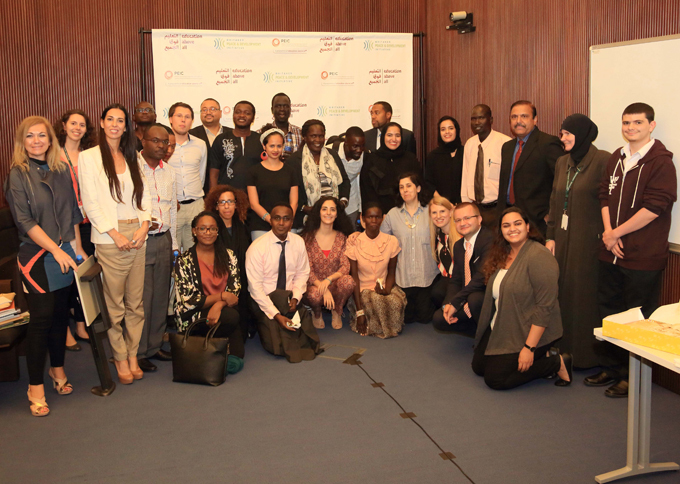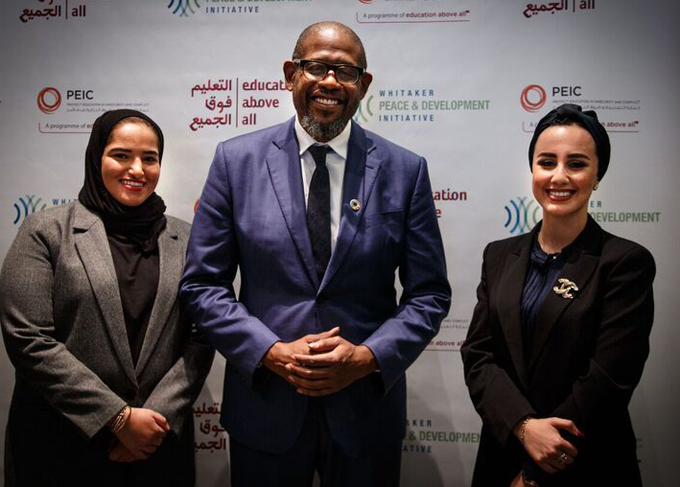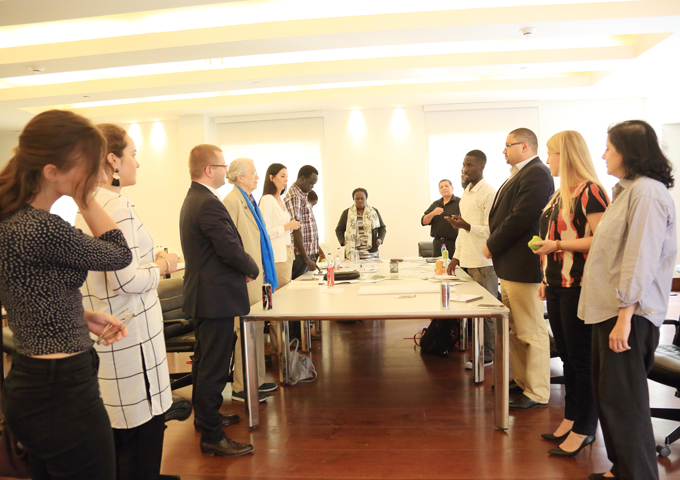Youth trained in peace-building skills
At least 66,000 children and youth were abducted by the LRA between 1986 and 2005
At just nine years of age, Monday Collins Okello was abducted by the Lord's Resistance Army war in northern Uganda. He was recruited as a child soldier.
Luckily, years later, he was able to return home unhurt. He would enroll into Hope North, a school created for former child soldiers in Uganda. Today, when he looks back, Okello believes peace building programmes are essential in shaping future generations.
"‘If we all connect like the parts of our body, we can create peace," he says.
‘You don't need to go through war to learn, you must accept and work at making the world a better place," he says.
According to a 2006 study by UNICEF, at least 66,000 children and youth were abducted by the LRA between 1986 and 2005. Many of these became child soldiers or sex slaves. A few escaped and several die in captivity.

For those who survive, the effects can be life changing - poor health, missed education opportunities and failure to reintegrate into society among others.
Just like Okello, another youth, Scovia Hidita was born during the second Sudanese Civil war. Her father passed away when she was a still young and her mother had to raise Hidita and her infant sister single handed. The young family became refugees in Uganda who lived on handouts. They were always on the move between the two nations.
Uganda is currently host to over 535,252 refugees; 224,420 of these refugees are from South Sudan. Reports by the United High Commissioner for Refugees indicate that 30,920 new arrivals had entered Uganda by January 2016.
Today, Hidita preaches peace and reconciliation.
"Problems are solved by forgiveness. You have to forgive them(the people behind the violence) despite the magnitude of the problems they may have caused by violence," she says.
 Maryam and Dana pictured with actor Forrest Whitaker.
Maryam and Dana pictured with actor Forrest Whitaker.
‘To make peace, you must have peace within. It requires energy to make peace. ‘We have to use non-violence to solve problems," adds Hidita
Both Okello and Hidita are some of the Ugandan and South Sudan youth that participated in a training programme on international human rights and humanitarian norms during the United Nations General Assembly in New York.
The programme dubbed Protecting Education in Insecurity and Conflict (PEIC) was carried out by the Education Above All (EAA) foundation in partnership with the Whitaker Peace & Development Initiative (WPDI).
It seeks to to develop the knowledge and skills needed for the next generation of leaders in South Sudan and Uganda, without using violence. It also promotes and protects the right to education in areas affected by crisis, conflict and insecurity.

"We are delighted to be enabling young people from across South Sudan and Uganda to share their knowledge and equip others with the skills they need to rebuild communities jeopardized by war, poverty and conflict. Education is the driver of human development and it is through sharing knowledge that we can overcome a legacy of war and violence," EAA said in a statement.
On his part, Forest Whitaker, the WPDI founder stated: "(By) joining forces, we are helping young people from Uganda and South Sudan become a force for peace in their communities and their countries. What we want is for these young women and men to become our partners in the dissemination of the message that education is a gateway to peace and should always be a priority in peace building."